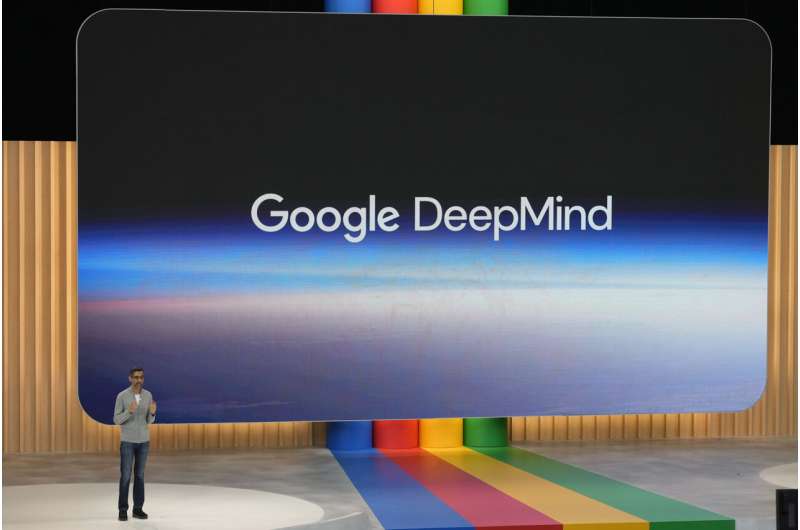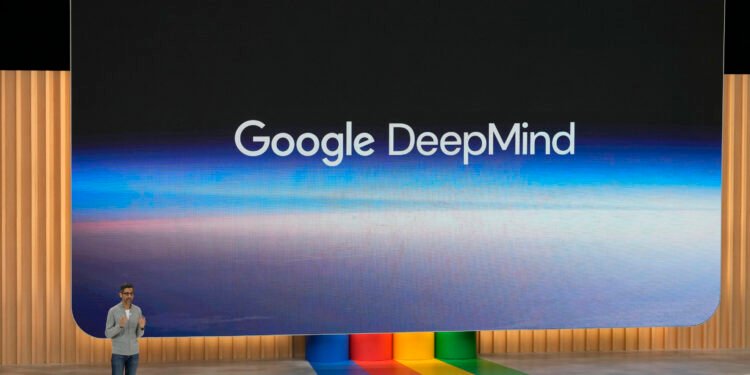
Google on Thursday introduced a free artificial intelligence app that will implant the technology on smartphones, enabling people to quickly connect to a digital brain that can write for them, interpret what they’re reading and seeing, in addition to helping manage their lives.
With the advent of the Gemini app, named after an AI project unveiled late last year, Google will cast aside the Bard chatbot that it introduced a year ago in an effort to catch up with ChatGPT, the chatbot unleashed by the Microsoft-backed startup OpenAI in late 2022. Google is immediately releasing a standalone Gemini app for smartphones running on its Android software.
In a few weeks, Google will put Gemini’s features into its existing search app for iPhones, where Apple would prefer people rely on its Siri voice assistant for handling various tasks.
Although the Google voice assistant that has been available for years will stick around, company executives say they expect Gemini to become the main way users apply the technology to help them think, plan and create. It marks Google’s next foray down a new and potentially perilous avenue while remaining focused on its founding goal “to organize the world’s information and make it universally accessible and useful.”
“We think this is one of the most profound ways we are going to advance our mission,” Sissie Hsiao, a Google general manager overseeing Gemini, told reporters ahead of Thursday’s announcement.
The Gemini app initially will be released in the U.S. in English before expanding to the Asia-Pacific region next week, with versions in Japanese and Korean.
Besides the free version of Gemini, Google will be selling an advanced service accessible through the new app for $20 a month. The Mountain View, California, company says it is such a sophisticated form of AI that will it be able to tutor students, provide computer programming tips to engineers, dream up ideas for projects, and then create the content for the suggestions a user likes best.
The Gemini Advanced option, which will be powered by an AI technology dubbed “Ultra 1.0,” will seek to build upon the nearly 100 million worldwide subscribers that Google says it has attracted so far—most of whom pay $2 to $10 per month for additional storage to back up photos, documents and other digital material. The Gemini Advanced subscription will include 2 terabytes of storage that Google currently sells for $10 per month, meaning the company believes the AI technology is worth an additional $10 per month.
Google is offering a free two-month trial of Gemini Advanced to encourage people to try it out.
The rollout of the Gemini apps underscores the building moment to bring more AI to smartphones—devices that accompany people everywhere—as part of a trend Google began last fall when it released its latest Pixel smartphones and Samsung embraced last month with its latest Galaxy smartphones.
It also is likely to escalate the high-stakes AI showdown pitting Google against Microsoft, two of the world’s most powerful companies jockeying to get the upper hand with a technology that could reshape work, entertainment and perhaps humanity itself. The battle already has contributed to a $2 trillion increase in the combined market value of Microsoft and Google’s corporate parent, Alphabet Inc., since the end of 2022.
In a blog post, Google CEO Sundar Puchai predicted the technology underlying Gemini Advanced will be able to outthink even the smartest people when tackling many complex topics.
“Ultra 1.0 is the first to outperform human experts on (massive multitask language understanding), which uses a combination of 57 subjects—including math, physics, history, law, medicine and ethics—to test knowledge and problem-solving abilities,” Pichai wrote.
But Microsoft CEO Satya Nadella made a point Wednesday of touting the capabilities of the ChatGPT-4 chatbot—a product released nearly a year ago after being trained by OpenAI on large-language models, or LLMs.
“We have the best model, today even,” Nadella asserted during an event in Mumbai, India. He then seemingly anticipated Gemini’s next-generation release, adding, “We’re waiting for the competition to arrive. It’ll arrive, I’m sure. But the fact is, that we have the most leading LLM out there.”
The introduction of increasingly sophisticated AI is amplifying fears that the technology will malfunction and misbehave on its own, or be manipulated by people for sinister purposes such as spreading misinformation in politics or to torment their enemies. That potential has already led to the passage of rules designed to police the use of AI in Europe, and spurred similar efforts in the U.S. and other countries.
Google says the next generation of Gemini products have undergone extensive testing to ensure they are safe and were built to adhere to its AI principles, which include being socially beneficial, avoiding unfair biases and being accountable to people.
© 2024 The Associated Press. All rights reserved. This material may not be published, broadcast, rewritten or redistributed without permission.
Citation:
Google’s Gemini AI app to land on phones, making it easier for people to connect to a digital brain (2024, February 8)
retrieved 8 February 2024
from https://techxplore.com/news/2024-02-google-gemini-ai-app-easier.html
This document is subject to copyright. Apart from any fair dealing for the purpose of private study or research, no
part may be reproduced without the written permission. The content is provided for information purposes only.









